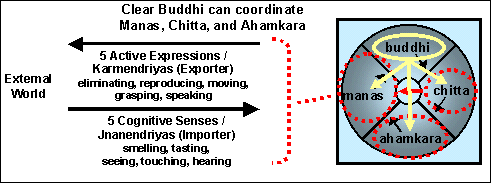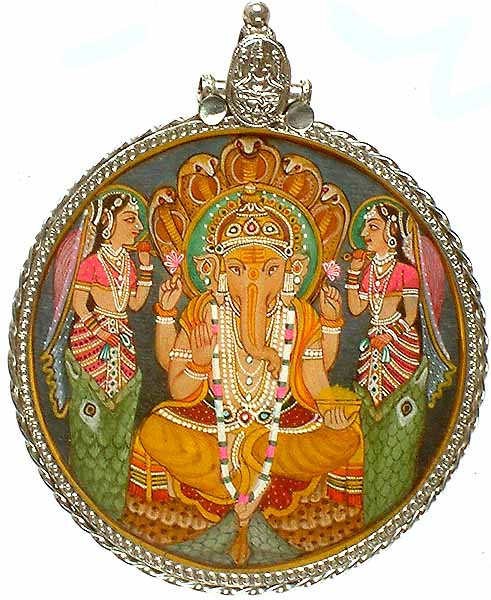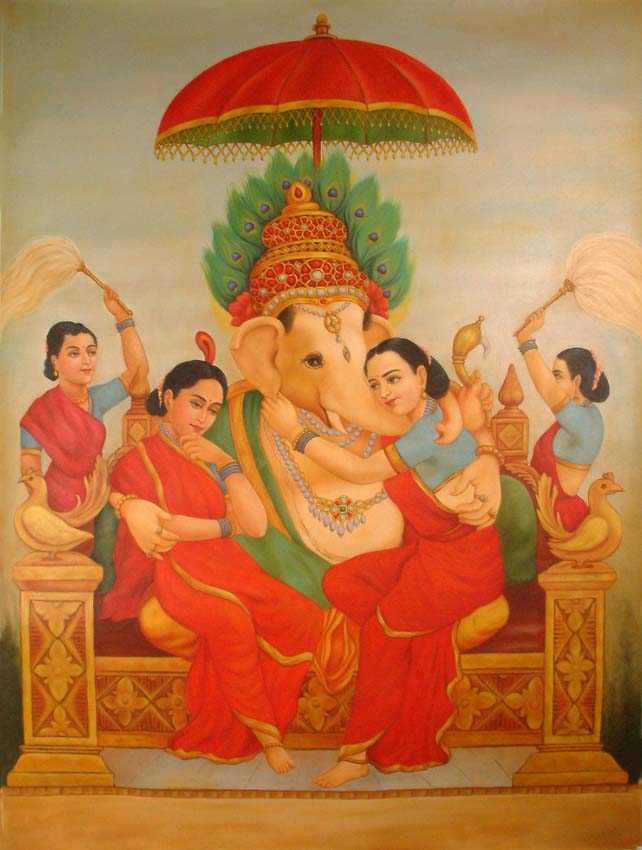Buddhi
Buddhi (Sanskrit, f, बुद्धि; cognition, distinctiveness ), an expression of Indian Philosophy is from the same root language ( budh - wake up; understand; know) derived, like its better-known male form buddha. The term refers to a transpersonal spiritual faculty of the mind, higher than the rational mind. Buddhi could also be translated as " intuitive intelligence" or "higher mind." Buddhi is "that which knows", for example, is able to distinguish falsehood from truth.
The term is for the first time in one of the middle Upanishads, the Katha Upanishad ( probably a few centuries before Christ ) mentioned in verse 3.10. In this Upanishad the world principles are ordered so that all that exists of the Purusha is at the top. Under this is the " Unoffenbare " which Avyakta. Deeper than Avyakta is then - according to this list - "The Great Self" ( mahan atma ), which in the world manifesting spirit and follows on from this, the presented subtle, higher cognition Buddhi. Next in this list follows Manas, the mind, the lower cognitive faculties. The lowest level then assume the sensory organs ( indriya ).
In Shvetashvatara Upanishad, the concept of " Ichmacher " ( Ahankara ) between Buddhi and Manas pushes. There should this be the rem presented consciousness of the individual, all to refer to himself and to bring themselves as individuals to advantage.
Buddhi corresponds to the Platonic concept of Nous.
In Hindu mythology Buddhi is one of the consorts of Ganesha.










